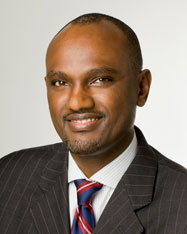
Africa’s leaders gathered at Speke Resort Munyonyo on the shores of Lake Victoria on the outskirts of the Ugandan capital Kampala on July 25th for the African Union bi-annual summit. This was the 15th meeting since the continental body was founded eight years ago.
The AU of today is very different from its predecessor, the Organization of African Unity (OAU), both institutionally and operationally. The OAU’s main mission was to end the twin evils of colonialism and apartheid. But after the gaining of independence by most African countries, the OAU adopted the principle of non-interference in the internal affairs of member states.
Constitutive Act
The AU is radically different and has adopted non-indifference as a guiding principle. Its founding document, the Constitutive Act, outlaws unconstitutional changes of government and emphasizes the principles of democracy and rule of law.
The Constitutive Act mandates the AU to vigorously pursue these principles, even if that means intervention in member states where war crimes, crimes against humanity, and genocide are being committed.
One of the side events at this summit was the launch of the AU publication on election-related disputes and political violence titled “Strengthening the Role of the African Union in Preventing, Managing, and Resolving Conflict Highlights.” This is timely considering that Africa will witness more than ten elections this and next year.
Conflict prevention
The publication is the outcome of a collaboration between the AU Commission and the New York-based think-tank, the International Peace Institute (IPI). It is a reproduction of the report of the Panel of the Wise, a body comprised of eminent Africans that provides direct support to the AU in areas of conflict prevention and mediation.
The publication presents a paradigm shift in the way the AU conducts business on the continent. The African heads of states should be commended for approving the recommendations by the Panel of the Wise, which are contained in this publication, and made during the 13th Summit of African heads of states and governments in Sirte, Libya last year.
The AU has a tendency to only focus on election monitoring and observation during elections to establish whether the electoral processes were free and fair in a particular member state. The AU also often focuses on mediation if a particular election leads to a contested result and political violence.
The Kenyan case in 2007 tested this approach to the limit, and inspired the report of the panel and its publication and launch. The electoral cycle favored in the recommendations brings a different approach to election monitoring by developing six pillars that can serve as a blue print in handling elections in Africa. What remains is for the continent’s leaders to summon the political will to implement it.
These pillars are: Preventive and early warning mechanisms, electoral governance and administration, coordination of electoral assistance, post-election conflict transformation mechanisms international coordination and partnerships and strategic interventions by the Panel of the Wise.
Pillar one is the most critical component of the electoral cycle that has been developed by the AU. It is imperative that all institutions of the AU invest in early warning mechanisms that focus on countries with a history of electoral violence, or those which exhibit signs of erupting into election-related conflict.
The AU can build on the work already being done by the African Peer Review Mechanism, the media, and academic and policy research institutions.
The Panel of the Wise is strategically poised to provide leadership in developing an early warning mechanism to forestall electoral violence. Another area of interest covered by the publication is electoral governance and administration.
Electoral governance
However, there is a serious concern that if this trend is not well managed, it may spiral out of control and become a political tool, abused for purposes of manipulating the democratic process and annulling the people’s vote.
If this is the case, then public trust in democratic institutions and elections may decline, which may in turn lead to decreased participation in democratic processes, especially elections. “There is a need to study constitutional, institutional, and legal frameworks to build a firm foundation for electoral governance and administration,” the publication notes.
The AU Commissioner for peace and security, Mr. Ramtane Lamamra, eloquently elaborates the urgent need to improve electoral processes in Africa. “The context in which our elections are held must change, and only then can we hope for a behavioral shift on the part of the participants,” he said. “This challenge requires political courage and commitment of our time and resources. This is not a eureka moment for the panel, but the gauntlet has been thrown down.”
Reprinted from The Monitor, Uganda







